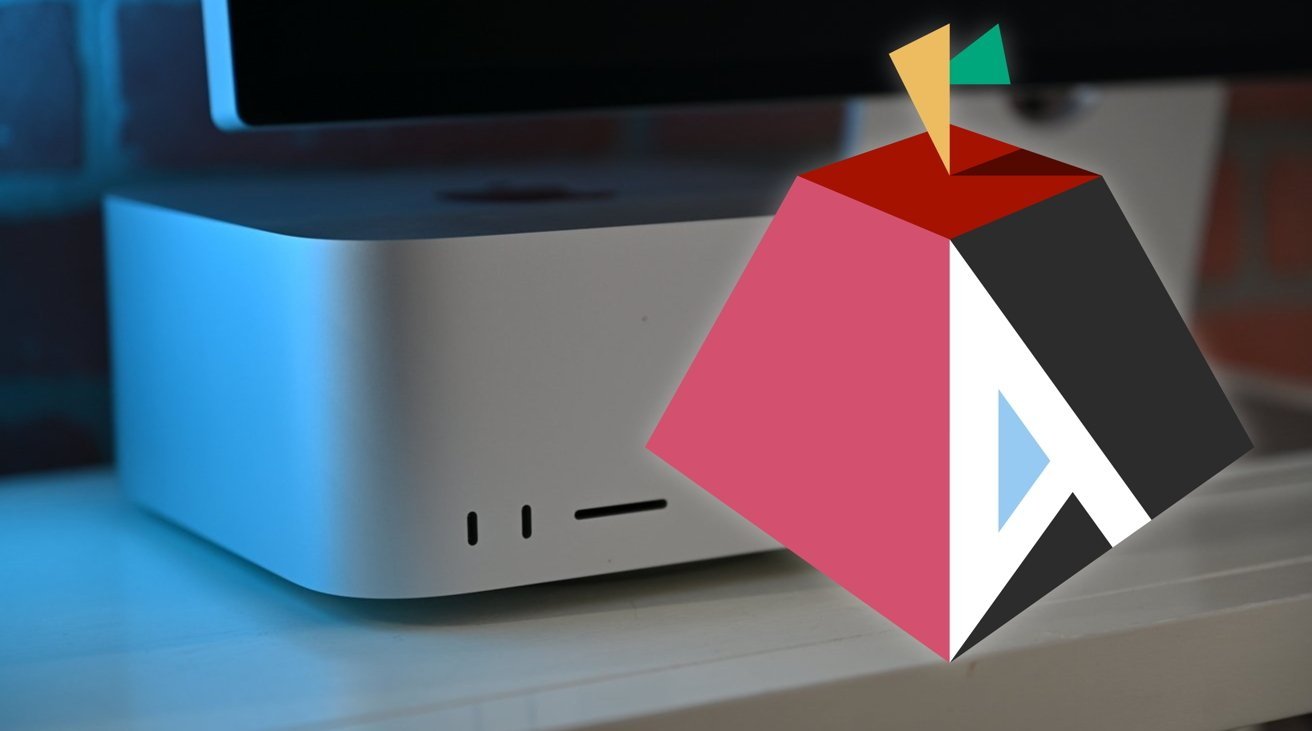Asahi Linux M4 support hits a roadblock because of Apple Silicon changes
The Asahi Linux project is having trouble bringing the operating system to M4 Macs, with some chip changes making working with the latest Apple Silicon models a lot tougher.

Asahi Linux logo and a Mac Studio
Asahi Linux is a project to make the Linux kernel work with Apple Silicon, so that Linux users can natively use modern Macs with Linux. After having success with M1 and M2 chips, the project is running into issues when trying to work with M4.
In a post to Mastodon on April 4, developer Sven Peter describes the work to add M4 support to Asahi Linux as "rather painful." This is in comparison to the challenges the project faced when it came to supporting M1 and M2.
The project, for the moment, is focusing on upstreaming M1 and M2 support, but it has started to look towards the M4 workload. Unfortunately, trying to run the m1n1 bootloader isn't working properly for some M4 users who have tried it, as Apple has changed something for the M4 generation.
Chip challenges
In describing the issue, Peter mentions how, when configuring a boot object, the environment is set where Apple's SPTM (Secure Page Table Monitor) is set to the GL2 register. The boot loader is supposed to communicate from EL2 (Exception Level 2) with the MMU (Memory Management Unit) enabled to set up pagetables.
The problem is that it doesn't work for Linux, Peter explains. It also doesn't help for running XNU, Apple's OS kernel, for reverse engineering purposes.
Configuring a raw boot object drops the process into EL2 with GL2, but with most of the Apple-specific extensions disabled. While this is OK for linux, it means XNU cannot be run under the project's hypervisor.
This is a bit of a roadblock for the project, and will make it considerably harder to enable M4 support to Asahi Linux in future. However, in a reply, Peter offers hope that a hijacking of XNU exception handlers and pagetable code could be a path forward.
There is no clear timetable for M4 support.
Read on AppleInsider

Comments
I switched to Linux from decades of using MacOS, and despite the inconveniences I’m very happy. Linux flies on my laptop, whereas MacOS has merely decent response times. There are many benefits to using Linux if you’re looking for them, but it’s clear that the majority of people are better served remaining on MacOS.
Still, I’m pretty happy to be able to run Linux natively on Apple hardware — the best of both worlds.
ETA: On the other hand, Apple's whole boot security model has become pretty complex and obscure, at least as viewed from the outside. Its inner workings are not designed or intended to be public, and I imagine there's been no line drawn to demarcate what we're allowed to know from what we aren't. The line is more like a circle, with only Apple inside. So maybe the necessary resources to change and police that would not be minimal?
While I understand why some people are enthusiastic about running alternative operating systems on Macs, as a longtime Apple user and non-tinkering consumer, I have zero interest in supporting any sort of effort that would have Apple waver from the pillars of security and privacy. In fact, these Asahi Linux efforts are probably encouraging Apple to strengthen boot security and make it more difficult to access certain parts of the system (like the Secure Enclave). I don't want it to be easy. Nothing is impossible but I want it to be super duper, painfully hard.
Linux is great in some situations but I don't want people to be able to run it on a Mac. This is coming from a person who used to be a UNIX/Linux system administrator. There is plenty of hardware out there that can run Linux whether it be old Wintel boxes, new PC hardware, or other devices like Raspberry Pies. Hell, my Super NES Classic console runs Linux.
They’re also why I’m leaving Apple and its closed systems. For years I accepted the security advantage, but it was before Apple decided to use all of your personal data to profile you and fill its products with advertisements. And Apple is far from done monetizing its users and further closing its systems to make it increasingly difficult — and in iOS impossible — to use its products without allowing Apple to track everything you install and use.
I don’t trust Apple as much as I used to.
Good luck with free pizza and beer Linux/Windows/Android?
He literally called Linux an „emulated UNIX“. Which it actually is, historically — it’s a pretend-UNIX that does all the UNIX things without *being* UNIX (and the associated licensing etc).